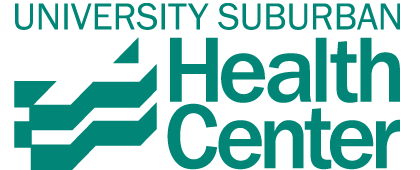News
February 01, 2019
University Suburban Health Center is pleased to announce the opening of Green Road Behavioral Health, led by Dr. Thomas A. Boyd, Psy.D.
Dr, Boyd is a Clinical Psychologist with more than 35 years of experience in providing mental health services. Early in his career he pursued an academic track with faculty appointments in the medical schools of Hahnemann, Brown, and Case Western Reserve Universities. He has published in professional psychology and medical journals, and presented both nationally and internationally.
He has pursued private practice for nearly 25 years primarily as an outpatient psychologist and individual psychotherapist working with adults ages 18 and older. He works effectively with individuals experiencing a wide array of difficulties, but has special interests in treating Mood Disorders, Anxiety Disorders, and adult ADHD. For several years he ran a very successful Intensive Outpatient Program that provided group therapy to individuals with severe acute or chronic disorders, and hopes to develop similar services here. He plans to expand the scope of Behavioral Health services at USHC by recruiting additional psychologists.
The mission of Green Road Behavioral Health is "to provide professional, caring, affordable, empowering and evidence-based psychological services to our patients, with the additional goal of continually improving the quality of care we provide through monitoring of treatment outcomes. Empowering yourself, empowering others."
Patients can call their practitioners for a referral to Dr. Boyd or they may call Dr. Boyd to schedule an appointment at 216.297.2055.
Medical Marijuana Practice Opens
August 27, 2018
One of the first doctors to open a medical marijuana practice in Ohio will be Neurologist, Andrew Kuntz, MD, when the State program is mandated by law to be fully functional on September 8.
Dr. Kuntz, who will see patients at University Suburban Health Center in suite 141 beginning Saturday, September 8, is certified by the State Medical Board of Ohio to recommend marijuana to patients who have one or more of 21 qualifying conditions – including severe pain, ALS, Alzheimer’s, cancer, Crohn’s disease, and sickle cell anemia.*
“Historically, marijuana or cannabis had been in use for thousands of years to treat medical conditions and could even be found in products in local drug stores until the 1930s,” says Dr. Kuntz. “Its criminalization began with the film Reefer Madness in 1936 and its use was further restricted when The Marijuana Tax Act of 1937 placed a tax on the sale of cannabis and the doctors who prescribed it.
Although the Shafer Commission’s report in 1972 called for the decriminalization of marijuana possession, it was largely ignored. It really was a patient-driven approach over many years that saw attitudes begin to change again. Today, it’s often seen as medicine that helps people who suffer from a variety of health issues,” he says. “Medical marijuana is currently legal in 30 US states and Canada. California legalized it more than 20 years ago.”
Patients with one of the 21 qualifying conditions, may ask their practitioners for a referral to Dr. Kuntz or may refer themselves as long as they can show documentation of the diagnosis for at least one of the qualifying conditions. Insurance does not currently cover Medical Marijuana.
Once medical marijuana is recommended by a doctor who holds a Certificate to Recommend (CTR), patients can purchase it at a licensed retail dispensary, as Ohio law doesn’t allow certified doctors to possess medical marijuana within the practice.
Medical marijuana can be used in different forms: oils, tinctures, plant materials, edibles and patches. Vaping is also permitted, but not smoking.
Appointments
Call 330-330-1294.
*The 21 Qualifying Conditions in Ohio
AIDS, amyotrophic lateral sclerosis (ALS), Alzheimer’s disease, cancer, chronic traumatic encephalopathy, Crohn’s disease, epilepsy or other another seizure disorder, fibromyalgia, glaucoma, hepatitis C, inflammatory bowel disease, multiple sclerosis, pain that is either severe or intractable, Parkinson’s disease, positive status for HIV, post-traumatic stress disorder (PTSD), sickle cell anemia, spinal cord disease or injury, Tourette’s syndrome, and ulcerative colitis.
Get Lab Results Quickly in One Easy Step
August 24, 2018
While patients will continue to receive lab results from their doctors, they can also request to receive copies of the results directly from the lab that performed the tests. At the University Suburban Health Center (USHC) located in suite 011 - most results performed onsite are ready after 24 hours.
“Proper consultation and evaluation of your lab tests by a licensed practitioner are important, so you should always discuss your results with your doctor,” says, Kathleen Allen, M.D., the Laboratory Director at USHC. “According to federal law (HIPAA), however, it’s the patient’s right to access his/her personal health information, and that includes lab tests.
Patients should take an active role in making sure test results are available to their health care providers and are encouraged to review and keep a copy of their lab results for personal reference even if they’re completely normal,” she added. “Knowing and understanding your lab results can assist you to make informed decisions while discussing treatment options with your doctor and help you focus on staying healthy.”
Get Your Lab Results Now
To receive lab results, patients can complete the Request to Access Protected Health Information form or complete it on the day of the lab visit. Results can be sent either through e-mail, fax, regular mail, or patients can pick the results up in suite 011.
January 10, 2018
Kathleen Allen, M.D., a pathologist and Diplomate of the American Board of Pathology in Clinical and Chemical Pathology, is the new director of the high-complexity lab in Suite 011.
Dr. Allen received her medical degree from Northeastern Ohio Universities College of Medicine and was Chief Resident in Clinical Pathology at UH’s pathology institute. She also completed a fellowship in Clinical Chemistry at UH.
Our on-site lab, which opened in 1973, is certified by CLIA and the College of American Pathologists (CAP) and staffed by Medical Lab Scientists and Medical Technologists certified by the American Society of Clinical Pathologists (ASCP).
The lab’s certified phlebotomists are trained to minimize discomfort and ensure a comfortable experience.
January 01, 2018
We've added a new Fuji Aspire Cristalle 3D mammography to our Diagnostic Imaging Department. What's the difference between a regular mammogram and a 3D? The latter ensures better breast health because it means fewer repeat images, a lower radiation dose and better images. It also has new contoured paddles that increase comfort. Our 3D mammograms are low-priced, too. You'll pay no more than $66.
We use only board-certified radiologists from University Hospitals of Cleveland. Our services and technologies are accredited and inspected by the State of Ohio, the American College of Radiology, and the Society of Medical Sonography. Our technologists are fully licensed and credentialed.

September 14, 2014
By Jeff Piorkowski, Special to Sun News
(Courtesy of Northeast Ohio Media Group)
September, 2014
SOUTH EUCLID, Ohio -- University Suburban Health Center is the city's second largest employer behind Notre Dame College), and aids the city in many ways.
Those ways include donating land for a community garden, purchasing a police K-9 and a bullet-proof vest for one of those dogs, sponsoring last week's HarvestFest, backing Community Partnership on Aging programs, and more. Over the years as I've written about the above things, University Suburban didn't necessarily want public credit for their acts in support of
South Euclid.
That shyness is now dissipating. Those who head the health center, 1611 S. Green Road, are speaking up in this time of confusion and distress -- and competition -- over health care and its costs.
University Suburban Assistant Executive Director Gregory McCarthy, during a recent sit-down, emphasized one point about the facility. You can pay less by using University Suburban and at the same time get the identical care you would expect from University Hospitals doctors and healthcare professionals. That may be two points.
At any rate, the cost is lower McCarthy explained, because other hospital-owned facilities are permitted to tack on a frequently large facility fee to their costs. University Suburban does not.
"We're not a hospital-based provider," McCarthy said. "Our rates are one-third less in most cases than hospital-based facilities."
"There's a lot of confusion because people see 'University Hospitals' on our sign," explained Executive Director Doug Eckert. "Our building is 51-percent owned by University Suburban Health Center, and 49-percent by University Hospitals, so we cannot charge the higher rates that hospitals do."
Eckert went on to say that all University Suburban doctors are on the staff of University Hospitals and are on the faculty at Case Western Reserve University School of Medicine or School of Dentistry.
Imaging results from MRIs or X-rays are read by University Hospitals radiologists. University Suburban, which has been in existence since 1973 on what had previously been the home of Rainbow Babies and Children's Hospital, has its own diagnostic imaging and clinical laboratory departments.
As a way of comparing costs, Assistant Executive Director Barbara McCann showed figures she found on health care providers' web sites pertaining to costs. For example, a simple three-view ankle X-ray at The Cleveland Clinic is listed for $252; atUniversity Hospital's Richmond Medical Center, the cost is $562; and at UH's Southwest General Hospital, it's $420.
Start the drum roll for the University Suburban cost as stated in its brochure for the same X-ray -- $86. And, that brochure also notes that patients always have a choice as to where they can receive their health care.
"You're getting hospital care at dramatically reduced rates," McCarthy said.
"We just want to remind people," Eckert said, "that you've got a tremendous asset in your own back yard as people are getting more concerned about health care costs."
So, there you have it. If you're experiencing the blues from an overly high deductible and are looking to save money, it might be worth it to check out University Suburban Health Center.
They're not remaining silent about what they do any more.






